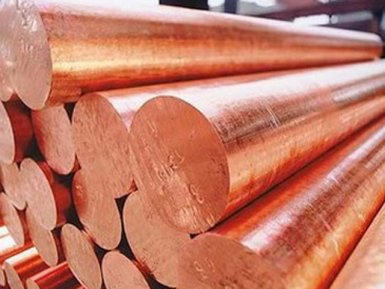Treatment of titanium and alloys

Are you interested in the methods of processing titanium and titanium alloys from the supplier AvecGlob? Here you will find interesting information on this topic /
Features of machining
Titanium alloys have very high tensile strength and toughness even at extreme temperatures, corrosion resistance and the ability to withstand extreme temperatures. However, it is precisely these features that become problems in the machining of such alloys. Titanium alloys because of their high strength, low thermal conductivity and easy chemical interactions with tool materials (at elevated temperatures) pose a danger to the tool, contributing to its damage and a significant reduction in its service life. In addition, a relatively low modulus of elasticity for most titanium alloys leads to instability in the consolidation of the preforms, which reduces the surface quality of the finished product.
Finally, during the turning or drilling process, a long continuous chip is formed. The cutting tool is entangled in it, which is especially dangerous for automated processing.
To exclude such negative phenomena, the following technical solutions are used:
Application of high-pressure cutting fluids;
Ultrasonic machining, in which the tool is constantly subjected to ultrasonic vibration with a very low amplitude. Instead of constantly contacting the tool with the workpiece, this method involves intermittent contact, which reduces the areas affected by heat.
Supplier — AvekGlob company — offers at affordable prices from the manufacturer various products made of titanium alloys and stainless steels. The supplier guarantees the timely delivery of products to any address specified by the consumer.
Treatment of titanium alloys by pressure
For the success of forging and stamping, the initial blanks must be thoroughly cleaned of oxides, scales and surface fatty contaminants.
Deformation of titanium alloys provides the following advantages:
Favorable effect on the microstructure, which becomes more homogeneous. In this case, pre-forging is performed above the beta-transition temperatures, since the cubic volume-centered structure is more plastic, and the requirements for forging pressure are lower. However, in this case the grain sizes increase, and the plasticity decreases. Therefore, final forging is usually carried out at temperatures just below the temperatures of the beta transformation.
Strengthening strength. At temperatures above 760 ° C, titanium alloys exhibit increased ductility, and can therefore be deformed with significant degrees of deformation. The ductility of the alloys increases, and the risk of stress-corrosion cracking is eliminated.
Due to the low modulus of elasticity and the relatively high strength of titanium alloys, they are difficult to forge into cold forming. Therefore, cold pressure treatment is used for blanks of titanium alloys with small dimensions.
Supplier — AvekGlob company — offers to purchase various welded constructions made of titanium alloys and stainless steel. Products can be bought at a price formed on the basis of European and world standards of production. Implementation is possible in bulk and retail, for regular customers, a flexible system of discounts operates.


